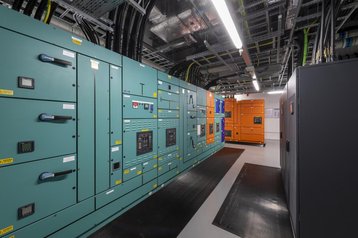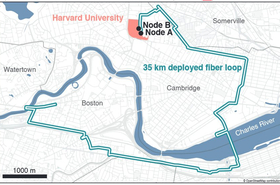The UK government has taken the first steps towards procuring an exascale computer, among the world's fastest, which is expected to be located at the University of Edinburgh.
The announcement, a "prior information notice" or PIN, puts a little more detail on previous releases but is not yet a detailed "call for competition" tender, which would set the actual procurement in motion. The PIN launches a process for "market engagement activities" regarding the sourcing needed for an exascale supercomputer for the UK.
Exascale computers are the world's fastest systems. capable of 1000 petaflops or 1018 flops (where a "flop" is a floatinng point operation), and are currently rare.
Plans for the UK supercomputer were first announced in March 2023, with the government announcing in October 2023 that the University of Edinburgh had been selected to host the system.
The PIN suggests that the exascale contract, once awarded, will be valued at around £348 million ($423.34m). This budget will be split between two phases, with phase 1 being a 250 petaflops system expected to be completed by December 2025.
In order to comply with the UK Research & Innovation's Responsible Procurement Charter, pre-market "engagement events" will be held in October and November 2023 which include questionnaires for potential vendors, a virtual engagement week, and face-to-face meetings between the UKRI and potential vendors.
Once deployed, the exascale computer will be approximately 50 times more powerful than the UK's current most powerful supercomputer, the 19.5 petaflops HPE Cray XE-based ARCHER2, which is also housed in Edinburgh.
Currently, the only Exascale supercomputer verified by the Top500 is the US' Frontier. Two more based in the States are due to come online in the next few months, Aurora and El Capitan.
Europe is also seeking to establish two exascale supercomputers: Jupiter will be housed at the Gauss Center for Supercomputing in Germany, and the second will be located at the TGCC computing center in France. Both are part of the EuroHPC effort.
In other HPC news:
US Army dedicates supercomputers to the ENIAC Six
The US Army Combat Capabilities Development Command Army Research Laboratory at Aberdeen Proving Ground has dedicated five new supercomputers to the ENIAC Six - the six women responsible for programming the first all-electronic digital computer in 1945 which was used to calculate artillery firing tables for the Ballistic Research Laboratory.
The women involved include Betty Jean "Jean" (Jennings) Bartik, Frances Elizabeth "Betty" (Snyder) Holberton, Kathleen "Kay" (McNulty) Mauchly Antonelli, Marlyn (Wescoff) Meltzer, Frances "Fran" (Bilas) Spence and Ruth (Lichterman) Teitelbaum.
A sixth computer will be installed next year.
Taiga Cloud gets Nvidia H100 GPUs
Taiga Cloud has partnered up with enterprise computing specialist Gigabyte to meet the demand for Generative AI applications
Gigabyte is providing Taiga Cloud with 20 Nvidia H100 GPU pods each with 512 H100 GPUs. This will bring Taiga Cloud's total Nvidia hardware portfolio to over 19,000 H100, A100, and RTX A6000 GPUs.
Taiga Cloud is part of Northern Data Group, a high-performance computing infrastructure provider. The company was carved out into three brands in August 2023: Taiga Cloud, Ardent Data Centers,and Peak Mining.







